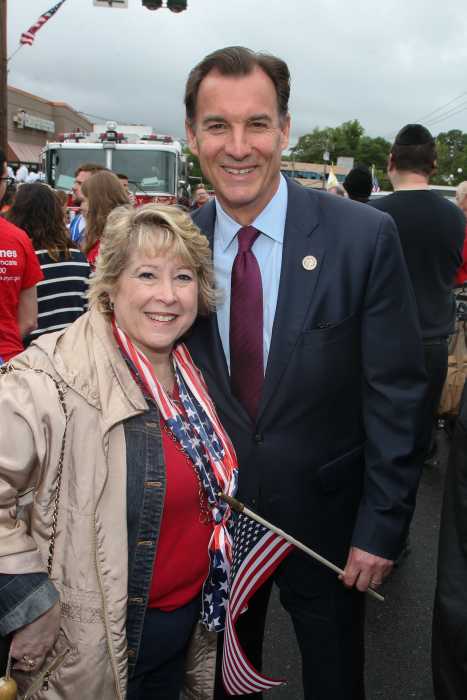Real estate brokers in Queens are speaking out against a proposed New York City Council bill to legislate broker fees for residential rentals.
The bill, Intro 360, mandates that any representative or agent involved in a residential rental transaction collect their fees from the party that hires them, whether they represent a property owner or a prospective tenant.
Jonna Stark of the real estate firm Brown Harris Stevens, which has Queens offices in Long Island City and Forest Hills, and Ryan Monell of the Real Estate Board of New York (REBNY) spoke with QNS about their opposition to the proposed bill. If passed, they discussed how renters could suffer from unintended consequences due in large part to the rise in housing costs and a limited inventory of apartments to apply for in New York City.
Monell said this bill could increase rents for many apartment seekers in the city because brokers and potential renters would be unable to negotiate fees and arrange for upfront payments.
“Ultimately, what you’ll see is higher rent, which, of course, will have its own impacts relevant to housing access and the ability for folks to afford apartments and everything like that going forward,” Monell said. “Ultimately, while the bill seems super simple on a fairness issue, it really makes it much more convoluted. You’re taking away the choice from a prospective renter to make the best decision for themselves relevant to how they are going to access an apartment.”
Additionally, Monell said this bill would force real estate agents working with landlords to charge them, adding more costs for the landlords that would need to be made up through higher rents. Some may not be able to afford to utilize an agent, which could end up being even more detrimental for the property owner, as agents bring with them an assortment of skills and experience when it comes to selling homes.
“When you think of all the work relevant to an application, listing the unit, taking good pictures, making sure you’re abiding by all the fair housing laws and keeping up-to-date with those laws, everything that goes into listing and accessing an apartment for a consumer, the agent does an incredible amount of work,” Monell said.
If the property owner is left to handle a transaction, Monell said it is much more likely that there will be less transparency and accountability between them and prospective renters.
“At the end of the day, while you’re also impacting the cost for the property owner, the bigger issue is that you’re actually taking away the ability for the market to be more available and easier to navigate for the prospective renter because you’re taking away the ability to incentivize agents and make that process easier,” Monell said. “We just think it’s going to lead to really bad consequences.”
Rather than punishing landlords and renters through this law, Monell believes the City should be prioritizing creating more housing units for residents.
“It is going to raise rents for tenants if this bill passes,” Monell said. “It’s just going to raise costs at a time where costs continue to go up. This is just going to be an additional cost for folks that really, at the end of the day, is going to lead to an upending of the system. It’s a misconstrued idea that will fundamentally undermine and do the opposite of what the bill’s sponsors in the City Council think.”
The bill was introduced last February by Council Member Chi A. Ossé of Bedford-Stuyvesant and North Crown Heights in Brooklyn. Several Queens Council members are listed as sponsors, including Shekar Krishnan, Selvena Brooks-Powers, Tiffany Cabán, Julie Won, James Gennaro, Robert Holden, and Nantasha Williams. A hearing on the bill is scheduled to take place in the City Council on Wednesday, June 12.
When the City Council meets at City Hall on June 12 to discuss Intro 360, thousands of real estate agents, including hundreds from Queens, intend to gather outside the building and voice their opposition to the proposed bill. Monell hopes that the lawmakers will listen to and consider the points made by the agents.
“Obviously, we understand that right now it is a very challenging market, and it’s very hard to find an apartment,” Monell said. “We think that we need to do more to make the market more accountable, more transparent. We have some ideas relevant to making sure that a prospective tenant knows what their rights are and what their options are relevant to when they go to look for an apartment, particularly when they are paired with an agent. We are prepared to talk about those ideas, and potentially, there can be legislation in the future.”
Stark, who works within the district of Council Member Won, said the most logical outcome if this bill gets passed is that rents will end up increasing across the city. She has already seen the difference between the landlord paying the broker’s fee and the tenant paying it. Whenever the landlord ends up paying it, her real estate firm lists the rent as being higher. While she noted that most renters typically prefer to pay a higher rent than the broker fee, she tries to encourage them to think twice about this, noting they would actually save significantly more money by paying the broker fee, especially if they intend to stay at the home for an extended period of time.
“These rental laws that the City Council is trying to create, unfortunately they know nothing about real estate and how it actually impacts the renter,” Stark said. “Oftentimes, bills that they pass to help the renters don’t help them at all. I feel the people creating these laws don’t actually understand how it impacts [renters].”
According to Stark, many “Mom and Pop landlords” in Queens trying to make ends meet can suffer the most from Intro 360. They already put a lot of work into making sure the apartments they look to flip are in pristine shape, including paying thousands of dollars for the walls to be painted, the unit to be cleaned and fixing anything within it that was damaged.
“When you really look at who [Intro 360] is hurting, it’s kind of hurting everyone,” Stark said. “Renters, who can’t negotiate the best deals for themselves anymore. It’s hurting landlords, who may just be trying to make ends meet. And it’s hurting agents. I think there’s this idea that we don’t do anything. That we just open a door and get paid. But that’s not the case. We work really hard for every penny we earn. The average agent, especially in Queens, we are just middle class working people trying to make a living.”
Stark also stressed the importance of agents staying up-to-date on new rental laws and forms each year, which most landlords do not have the time to review.
“I do believe an agent is key in getting units rented in a fair and equitable way with the proper documents and required disclosure forms,” Stark said. “There is a big job in getting an apartment rented. There’s a lot that goes into it, and it’s to help make the process go more smoothly for not just the landlord but also the tenant. Our job is to get to a meeting of the minds to find a deal. To find a home for a renter and find a good tenant for the landlord. Agents really do a big job here.”




































